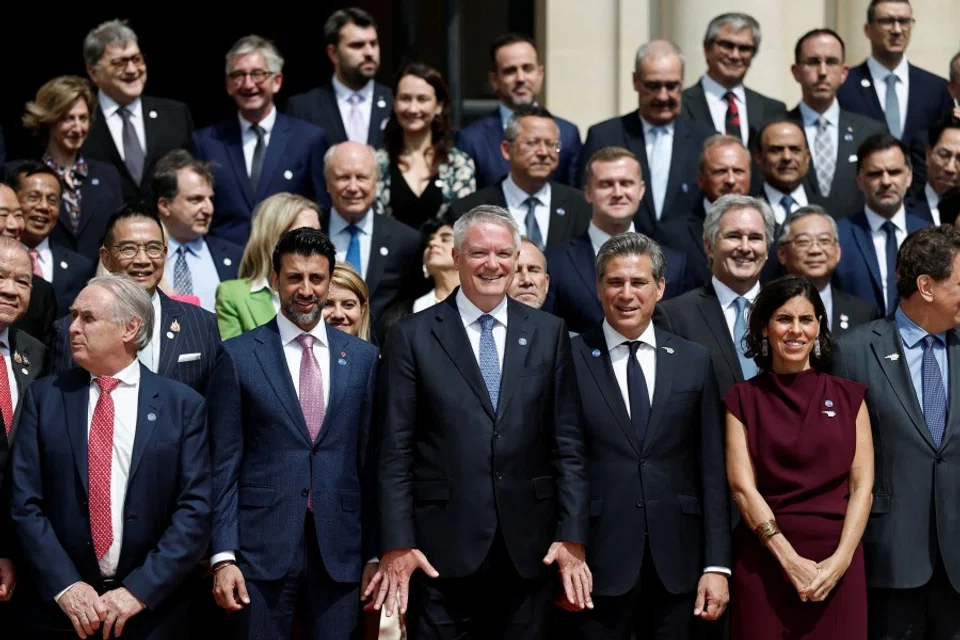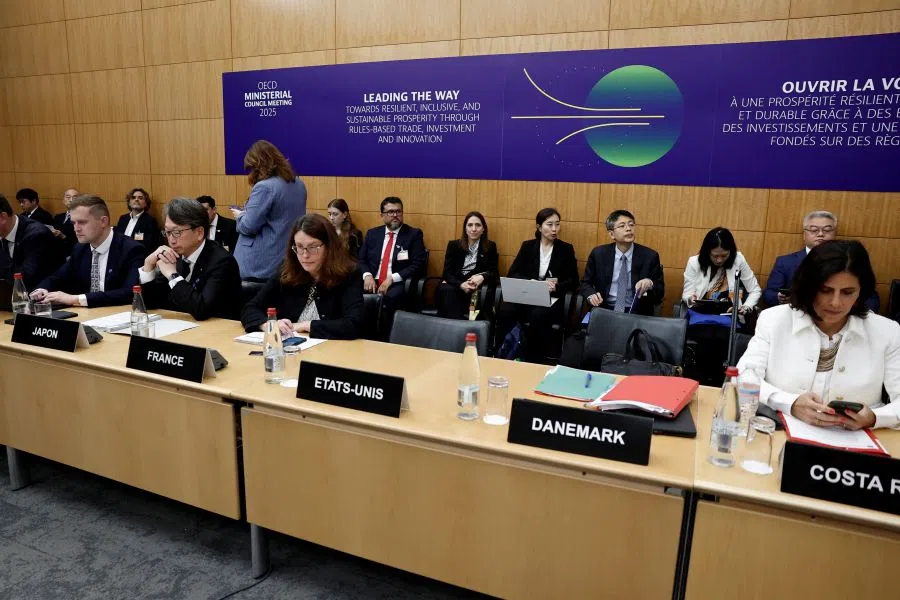The OECD: Can a ‘club of the rich’ embrace China’s rise?
The Organisation for Economic Co-operation and Development (OECD) was known as a “club of the rich”. Has that changed, or is its current expansion an indication that it is becoming more inclusive? Japanese academic Shin Kawashima takes a look at how the OECD’s growth might affect China.

The Organisation for Economic Co-operation and Development (OECD), headquartered in Paris, is also known as the “club of the rich”. It was originally established as the Organisation for European Economic Co-operation, launched as part of the Marshall Plan after World War II. With the later inclusion of the US and Canada, it was transformed into the OECD in 1961. Japan joined in 1964, becoming the first Asian country to become a member.
As a club of developed nations, the OECD holds overwhelming economic power on the global stage. Precisely because of this, it serves as an important platform for shaping the rules of the global economy, and also functions as a think tank, accumulating and publishing a vast amount of data.
... China is not hostile toward the OECD, and has maintained a certain level of engagement with the organisation.
China and the OECD
However, China, despite being the world’s second-largest economy, is not a member of the OECD. China regards itself as a developing country and often criticises the global order led by developed nations, which naturally keeps it at a distance from the OECD.
In practical terms, China cannot accept the membership conditions imposed by the organisation. Among these are requirements related to democracy and a market economy. More specifically, China finds it difficult to meet standards such as the ratio of official development assistance to GDP and oil reserve quotas set by the International Energy Agency. Since OECD membership requires fulfilling numerous criteria, China has remained hesitant about joining.
However, China is not hostile toward the OECD, and has maintained a certain level of engagement with the organisation. In 2007, China became a key partner country of the OECD. In 2015, then Premier Li Keqiang visited the OECD headquarters and announced China’s accession to the OECD Development Centre, while also agreeing to promote joint projects for 2015-2016.

Also, from 2016, Premier Li Keqiang invited the OECD, the World Bank, the International Monetary Fund and other major institutions to Beijing to hold the “1+6” (China+6) Roundtable. This was part of China’s active efforts to participate in the global governance framework. In addition, China has also taken part in many OECD activities, including the Programme for International Student Assessment.
Premier Li Keqiang hosted the 7th “1+6” Roundtable in December 2022. However, his successor, Premier Li Qiang, who took office in March 2023, did not directly carry on this framework. Instead, in December 2024, Premier Li Qiang launched a new framework called the “1+10” Roundtable. This new model builds on Li Keqiang’s “1+6” Roundtable and incorporates additional frameworks, such as the Asian Infrastructure Investment Bank. OECD secretary-general Mathias Cormann attended the meeting.
As described above, although China maintains a certain distance from the OECD, it continues to engage in dialogue and maintain relations with the organisation. This represents a notable development under Xi Jinping’s leadership. In this sense, the OECD has the potential to become a key node in global governance that includes China.
Once known as a club of developed nations, the OECD has expanded significantly, particularly after the end of the Cold War.
Shifts in the OECD
In addition, the OECD has recently undergone unprecedented changes — namely, a rapid increase in its membership. Once known as a club of developed nations, the OECD has expanded significantly, particularly after the end of the Cold War. Most notably, it is now actively working to bring in “emerging countries” as new members. While the expansion of the Shanghai Cooperation Organisation and BRICS has drawn attention, with many emerging nations joining or seeking membership, the OECD is also moving in the direction of broadening its membership.

Countries in Eastern Europe and the Baltic region are already well-represented, and others such as South Korea, Israel, Mexico, Chile, Colombia and Costa Rica in Asia and Latin America have also progressed toward membership. Countries such as Thailand and Indonesia in Asia, and Brazil and Argentina in Latin America, are currently candidates to become members, while there is also growing discussion around South Africa — the G20 chair in 2025 — potentially becoming a candidate for OECD membership.
... if the organisation [OECD] reverts to emphasising its identity as a club of the rich, it will be difficult for it to maintain its function as a global bridge.
The increase in OECD member states and candidate countries undoubtedly reflects the organisation’s intention to extend the order it has established to a global scale, seeking broader expansion and influence worldwide. Moreover, considering that the combined GDP of OECD member countries has declined to just 50% of the global total, it can be inferred that the OECD hopes to maintain its influence by bringing in new members.
If this expansion proceeds at a measured pace, the OECD could potentially become an important platform for preserving the existing world order, much like the International Monetary Fund or the World Trade Organization, and could, to some extent, bring China into the fold. However, if the organisation reverts to emphasising its identity as a club of the rich, it will be difficult for it to maintain its function as a global bridge.
After all, in this context, every move the US government makes is critical.





